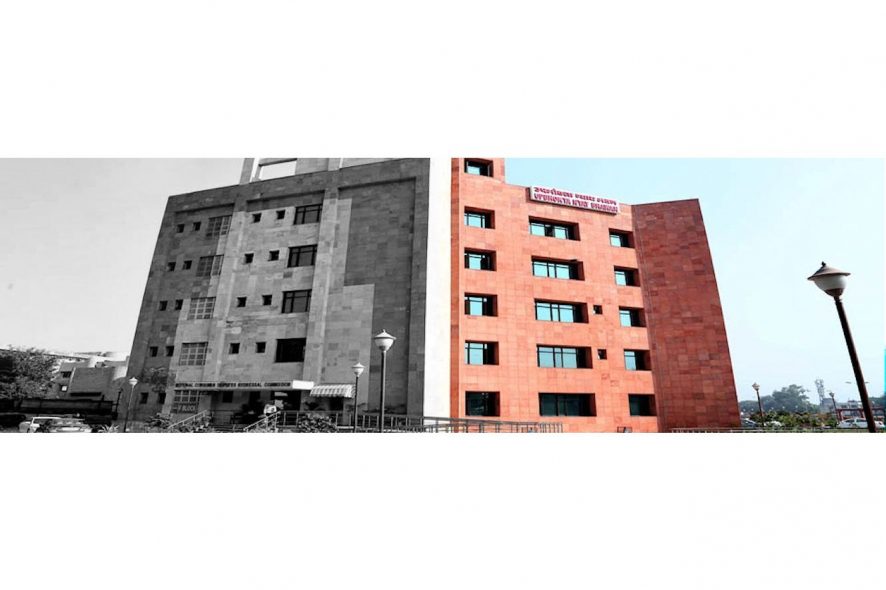National Consumer Disputes Redressal Commission (NCDRC): The complainant is a Non-Resident Indian (“NRI”) residing in the USA. He booked a flat with the respondent which was duly allotted to him in August 2007. The agreement between the parties stated that the flat shall be delivered within three years of the allotment and a three-month grace period in case of force majeure subject to regular payment of instalments to the respondent. The flat booked was for a consideration of Rs. 98,13,760 of which Rs. 76,48,940 was paid by the complainant before he learnt that despite the expiry of the stipulated time period, no progress except a basic structure had been set up. He claimed a refund of deposited money with 18% interest. When the respondent failed to do so, the complainant approached the National Consumer Disputes Redressal Commission (“NCDRC”) claiming deficiency in service and unfair trade practices.
The respondent made a three-pointed objection to the same:
1. The NCDRC does not have pecuniary jurisdiction over this issue as it can only entertain complaints which involve a sum exceeding Rs. One crore.
2. Since the complainant is an NRI, he would have no intention of residing in the said property and would only sell it further for profit, hence he does not qualify as a ‘consumer’.
3. The delay in construction was due to force majeure as a stay order on the construction was passed by the High Court of Judicature at Hyderabad (“the High Court”), an interim stay order by the Andhra Pradesh Waqf Tribunal (“Tribunal”), and another order by the Tribunal restraining the respondent from alienating part of the property. These impediments could only be removed after an SLP filed in the Supreme Court vacated the stay and the construction was resumed.
The NCDRC referred to its previous decision in Ambrish Kumar Shukla v. Ferrous Infrastructure Pvt. Ltd., 2016 SCC OnLine NCDRC 1117 where it was held that “[I]t’s the value of the goods or services and the compensation, if any, claimed which determines the pecuniary jurisdiction of the Consumer Forum.”
In the case at hand, the complainant had claimed a refund of the amount already deposited, i.e. Rs. 76,48,940 with 18% interest as compensation, which, in total, would amount to a sum above Rs One crore and hence would fall within the pecuniary jurisdiction of the NCDRC under Section 21(a) of the Consumer Protection Act, 1986 (“the Act”).
The NCDRC also held that the Act makes no distinction between resident citizens of India and NRIs and the presumption that the complainant would only sell the fat for profit was not founded on any logic.
With regard to the force majeure argument, the NCDRC observed that over six years had passed since the stay had been vacated and if the respondent actually had any intention of delivering the possession of the flat, he could have done so within two years from the date of the vacation of the stay. Since he did not do this, he cannot use the defence of force majeure to escape his liability for delay.
The NCDRC also expressed disapproval towards clauses in the sale agreement which provided measly compensation in case of delay and no interest if the buyer himself cancelled the contract as these oppressive conditions would give undue advantage to the builder. Hence the complaint was allowed and the respondent was direct to repay the amount advanced by the complainant with 10% interest. [Ram Balakrishnan v. Somitri Das, Consumer Case No. 236/2011, decided on 24.05.2018]







